
Maun: The Gateway to the Okavango Delta
Maun, a bustling town in Botswana, serves as the gateway to the dazzling Okavango Delta, one of the world's largest inland deltas. Known for its vibrant atmosphere and welcoming locals, Maun is a focal point for tourists looking to explore the rich wildlife and stunning landscapes of the delta. Whether you're setting off on a safari or embarking on a mokoro canoe adventure, Maun provides the perfect starting point for an unforgettable journey into nature. The town itself is a mix of modern amenities and traditional charm. You can find everything from cozy lodges and luxury hotels to local markets selling handmade crafts and fresh produce. The Thamalakane River runs through Maun, offering scenic spots for picnics and bird watching. Maun's airport is a hub for charter flights, making it easy to reach remote camps in the delta and other national parks in Botswana. Beyond its role as a travel hub, Maun has its own unique attractions. The Nhabe Museum offers insights into the local culture and history, while the Maun Wildlife Educational Park is a great place to learn about the region's flora and fauna. For those interested in community-based tourism, there are opportunities to visit nearby villages and experience traditional ways of life. All these elements combine to make Maun a destination in its own right, not just a stopover on the way to the Okavango Delta.
Local tips in Maun
- Book your safari in advance, especially during peak season (July to October).
- Don't miss a mokoro ride to explore the waterways of the Okavango Delta.
- Visit the local markets for unique souvenirs and handmade crafts.
- Carry some cash as not all places accept credit cards.
- Consider a guided tour to learn more about the area's wildlife and culture.
Maun: The Gateway to the Okavango Delta
Maun, a bustling town in Botswana, serves as the gateway to the dazzling Okavango Delta, one of the world's largest inland deltas. Known for its vibrant atmosphere and welcoming locals, Maun is a focal point for tourists looking to explore the rich wildlife and stunning landscapes of the delta. Whether you're setting off on a safari or embarking on a mokoro canoe adventure, Maun provides the perfect starting point for an unforgettable journey into nature. The town itself is a mix of modern amenities and traditional charm. You can find everything from cozy lodges and luxury hotels to local markets selling handmade crafts and fresh produce. The Thamalakane River runs through Maun, offering scenic spots for picnics and bird watching. Maun's airport is a hub for charter flights, making it easy to reach remote camps in the delta and other national parks in Botswana. Beyond its role as a travel hub, Maun has its own unique attractions. The Nhabe Museum offers insights into the local culture and history, while the Maun Wildlife Educational Park is a great place to learn about the region's flora and fauna. For those interested in community-based tourism, there are opportunities to visit nearby villages and experience traditional ways of life. All these elements combine to make Maun a destination in its own right, not just a stopover on the way to the Okavango Delta.
When is the best time to go to Maun?
Unmissable attractions to see
Helicopter Horizons
Discover the Okavango Delta from above with scenic helicopter flights, offering unparalleled views of Botswana's stunning landscapes and wildlife.
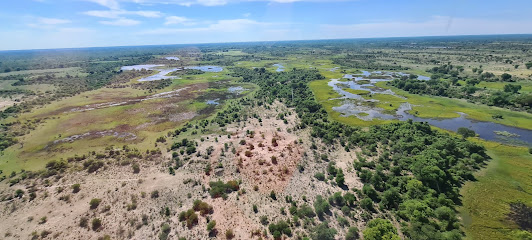
Afro-Trek
Experience Botswana's beauty at Afro-Trek: Guided wildlife tours, cultural immersion, and sustainable adventures in the heart of Africa.
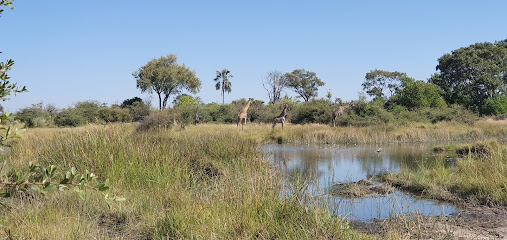
Luna Garden
Escape to Luna Garden: Maun's serene oasis of lush greenery, vibrant flowers, and tranquil landscapes. Perfect for relaxation and nature lovers.
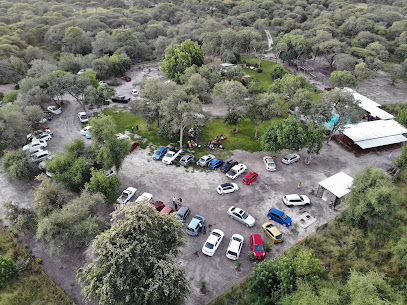
Nhabe Museum
Discover the cultural heart of Ngamiland at the Nhabe Museum in Maun, Botswana, showcasing local history, art, and traditions.
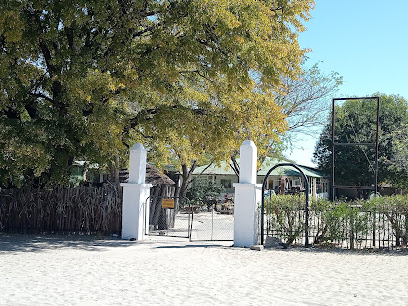
Exploring Botswana Tours Safaris
Experience unforgettable mobile tented safaris in Botswana's iconic wildlife destinations with expert guidance and a commitment to conservation.
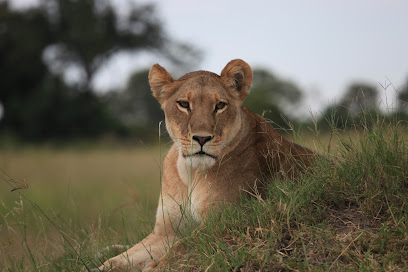
OKAVANGO CAMEL RIDES
Experience the Okavango Delta like never before with unique camel rides, cultural insights, and unforgettable Botswana adventures in Maun.
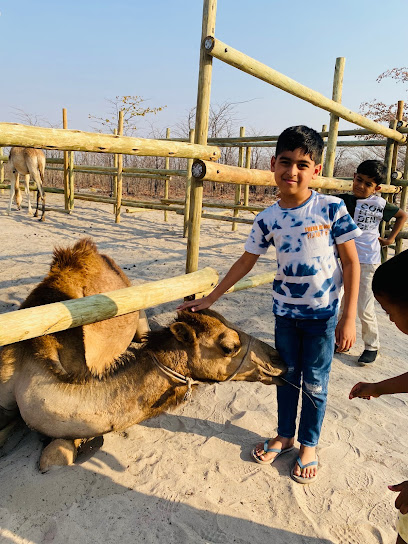
Tolankwe Conservancy
Discover Botswana's hidden gem: Explore diverse wildlife and support sustainable tourism at Tolankwe Conservancy near Maun.

Joe's Corner
Discover tranquility at Joe's Corner, Maun's serene park perfect for relaxation, picnics, and enjoying Botswana's natural beauty.
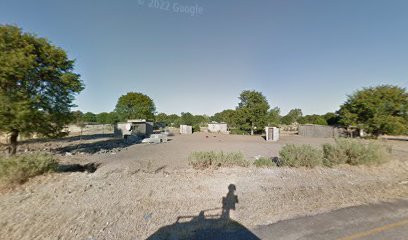
Somewhere in the Bush Safaris
Discover Botswana's vibrant birdlife and stunning landscapes at Somewhere in the Bush Safaris, Maun's premier birdwatching destination.
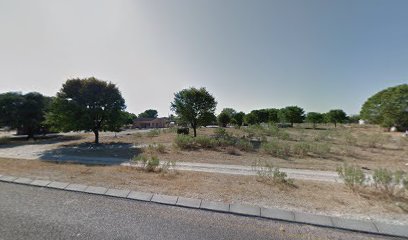
Schabs Island
Discover Schabs Island in Maun, Botswana: a serene escape offering natural beauty, cultural richness, and unforgettable wildlife encounters.
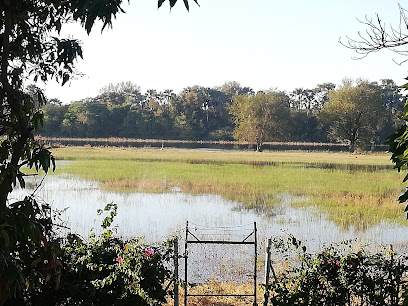
Historic Mobile Safaris Okavango Delta
Explore the breathtaking landscapes of the Okavango Delta with Historic Mobile Safaris, a premier wildlife experience in Botswana's natural paradise.
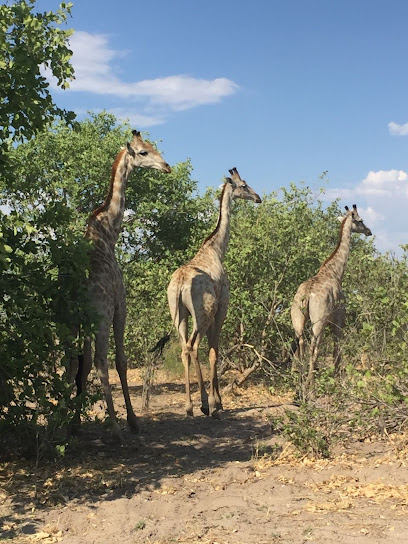
Moreno park
Escape to Moreno Park in Lekawen Drift, Botswana, for a tranquil nature retreat perfect for relaxation and family outings.

Campboro Safaris
Experience Botswana's natural beauty at Campboro Safaris: camping, adventure sports, and serene landscapes await in the heart of Maun.
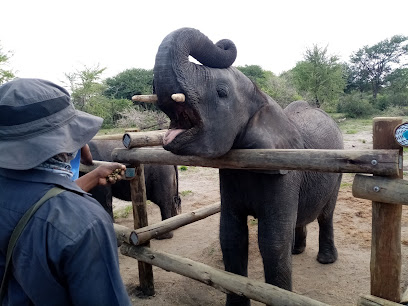
NG/18 ( Khwai Development Trust )
Discover Botswana's natural beauty at NG/18 (Khwai Development Trust): wildlife, cultural experiences, and community-driven conservation.
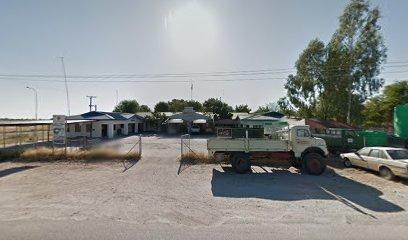
Fuchsia Farm & nursery, Samedupi. Botswana
Discover a vibrant oasis at Fuchsia Farm in Maun, Botswana: a serene escape filled with colorful blooms and botanical wonders.
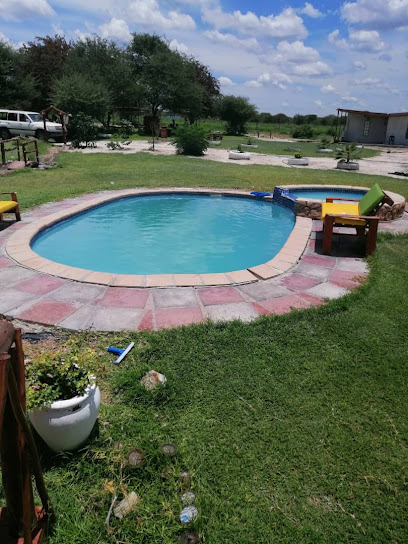
Essential places to dine
Nando's Maun
Discover the delicious taste of flame-grilled peri-peri chicken at Nando's Maun, where every bite is a flavor adventure.
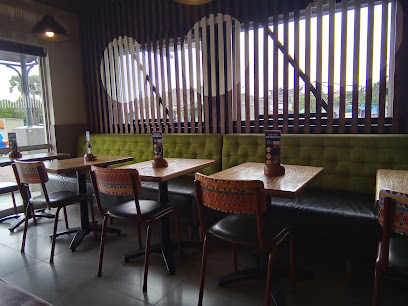
Tandurei Indian Restaurant
Experience the vibrant flavors of India at Tandurei Indian Restaurant in Maun - a must-visit culinary destination for tourists.
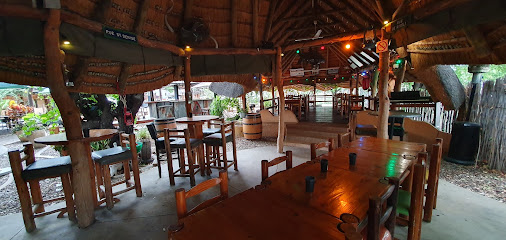
Wimpy
Discover delicious fast food at Wimpy in Maun – perfect for travelers seeking quick bites before exploring Botswana's natural wonders.
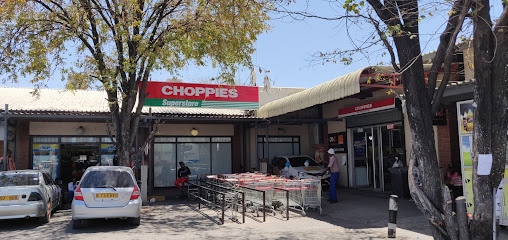
Dusty Donkey Café
Experience local flavors and warm hospitality at Dusty Donkey Café in Maun – your perfect culinary retreat in Botswana.
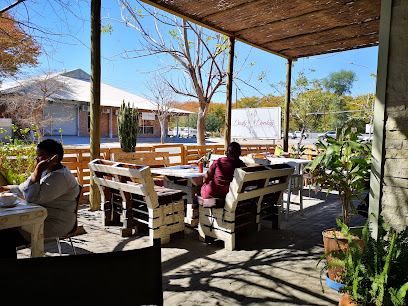
Marc's Eatery
Discover delightful breakfasts and lunches at Marc's Eatery in Maun – where local flavors meet cozy ambiance.
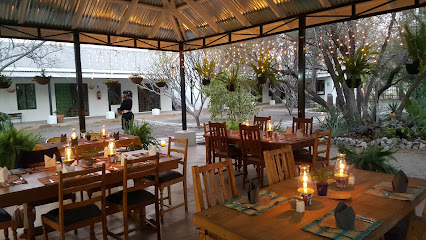
KFC Maun
Experience fast food bliss at KFC Maun with delectable fried chicken and comfort meals in the heart of Botswana's adventure hub.
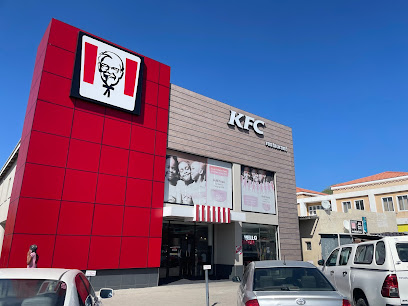
Il Pomodoro Maun/ Poms Beer Garden- Pizzeria
Experience authentic Italian flavors at Il Pomodoro Maun – your go-to pizzeria and beer garden in Botswana's vibrant town.
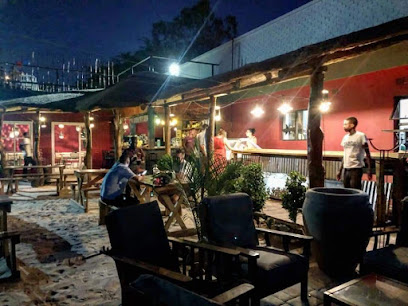
Debonairs Pizza
Experience the best pizza in Maun at Debonairs Pizza - a must-visit for tasty takeout and family-friendly dining.
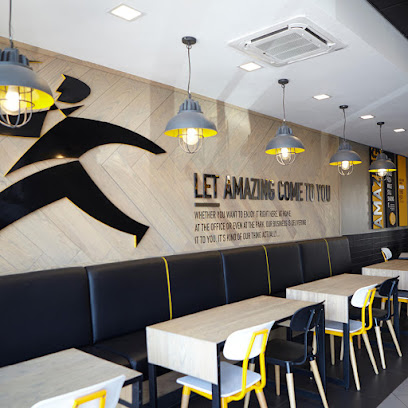
The Duck Café
Experience authentic flavors at The Duck Café in Maun – where culinary excellence meets local charm.
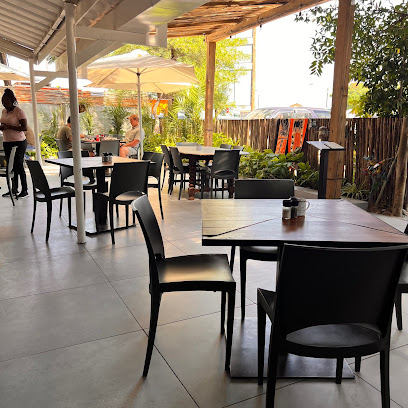
The Boma Restaurant & Riverview Bar
Experience exquisite local cuisine with stunning river views at The Boma Restaurant & Riverview Bar in Maun.
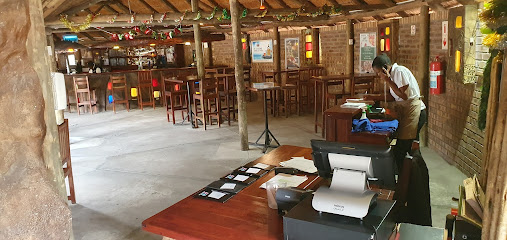
Lunar Bar
Discover the delightful fusion of flavors at Lunar Bar in Maun – where grilled specialties meet vibrant ambiance for an unforgettable dining experience.
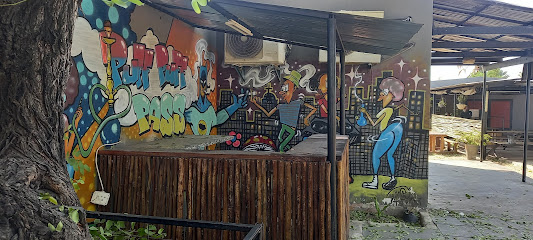
Akacia Cafe
Discover the flavors of Botswana at Akacia Cafe in Maun - where local ingredients meet delightful dining experiences.
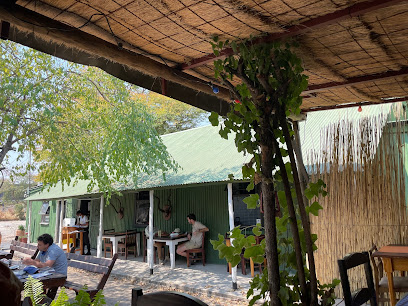
Hilary's Restaurant
Experience authentic Botswana flavors at Hilary's Restaurant in Maun – where every dish tells a story.
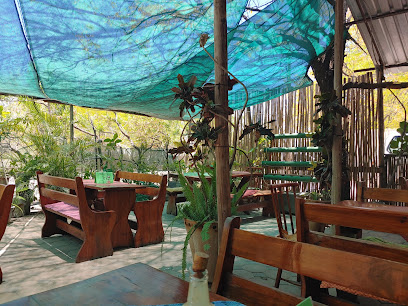
Choice Take away & Restaurant
Discover authentic Botswana cuisine at Choice Take Away & Restaurant in Maun—where every meal tells a story.
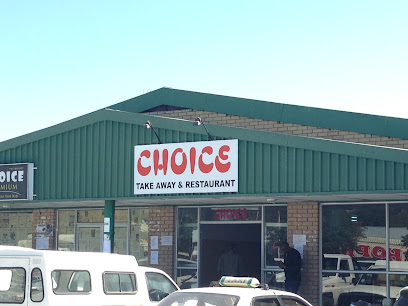
Runway 08
Experience the vibrant flavors of Botswana at Runway 08 - where local cuisine meets modern dining in Maun.
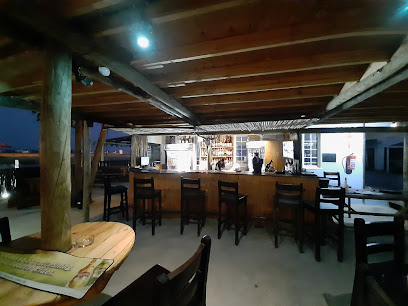
Markets, malls and hidden boutiques
Shoprite Maun
Discover local flavors and shop for essentials at Shoprite Maun, the heart of shopping in Botswana's vibrant town.
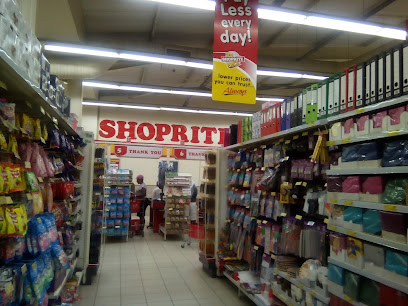
Woolworths
Discover Woolworths in Maun for a premium shopping experience with fresh local produce and high-quality groceries.
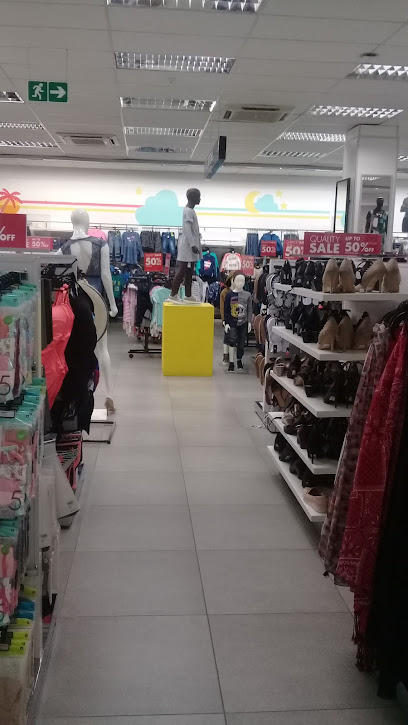
Choppies Boseja
Discover the best local groceries at Choppies Boseja in Maun, Botswana, featuring fresh produce and essential goods for your stay.
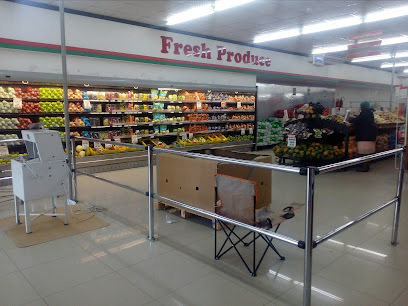
Sefalana Shoppers Boseja
Explore Sefalana Shoppers Boseja in Maun for a vibrant shopping experience filled with local flavors and international brands.
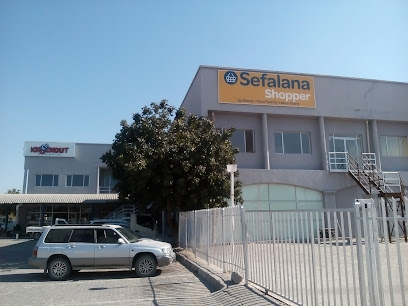
Choppies Superstore
Discover the vibrant Choppies Superstore in Maun, where local flavors meet global convenience for an unforgettable shopping experience.
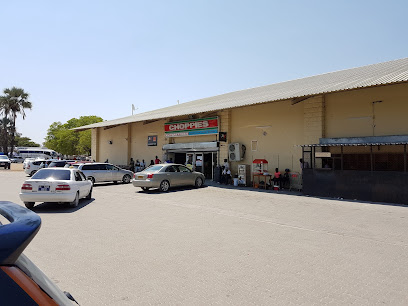
Choppies
Discover the vibrant shopping experience at Choppies, Maun's favorite supermarket for fresh produce and local delicacies.
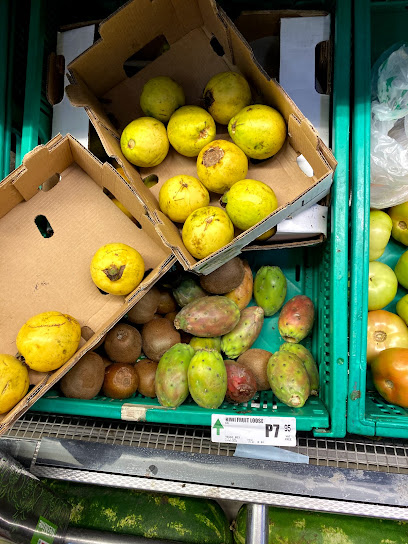
SPAR Safari (maun)
Experience the best of Maun at SPAR Safari, your go-to supermarket for fresh produce, local delicacies, and everyday essentials.
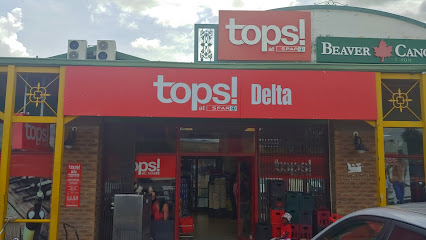
Beyond Capabilities
Discover a vibrant shopping experience at Beyond Capabilities in Maun, Botswana, where local culture meets modern convenience.
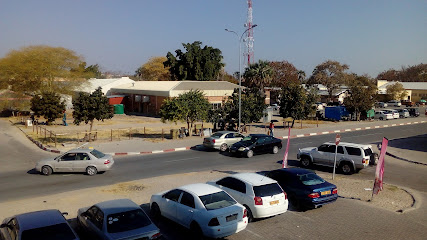
Delta Palms Shopping Centre
Discover the vibrant shopping experience at Delta Palms Shopping Centre in Maun, Botswana, complete with retail, dining, and entertainment options.
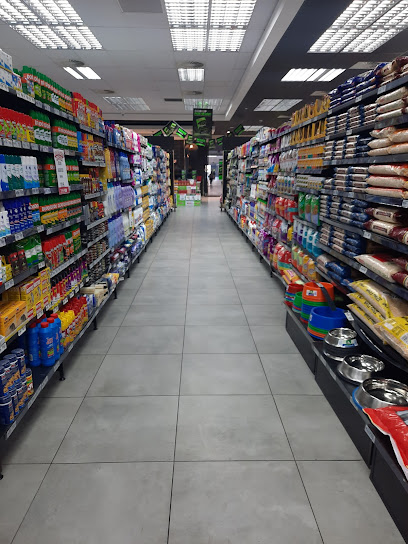
Sefalana shoppers
Discover authentic Botswana flavors at Sefalana Shoppers, a vibrant grocery store in Maun offering fresh produce and local delicacies.
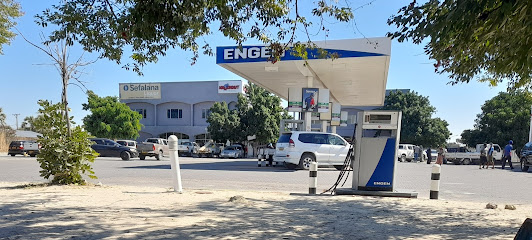
General Old Mall
Explore General Old Mall in Maun for unique local shopping experiences and cultural insights amidst a relaxed atmosphere.

The Office Shop
Discover a treasure trove of stationery and exquisite writing instruments at The Office Shop in Maun, Botswana's creative hub for all your writing needs.
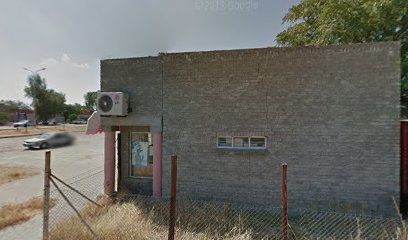
Mr Price / MRP
Explore stylish and affordable fashion at Mr Price in Maun, where local flair meets trendy designs for every wardrobe.
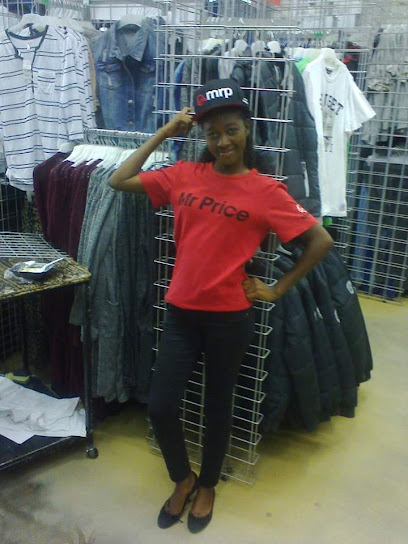
Maun ECO craft market
Explore the vibrant Maun ECO Craft Market, a treasure trove of local arts and crafts showcasing the rich culture of Botswana.
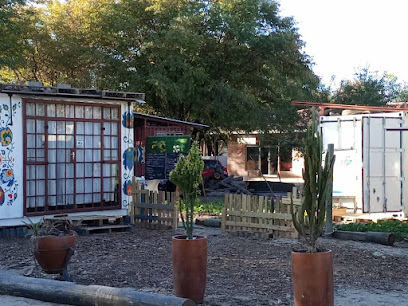
Ackermans Maun
Discover stylish and affordable fashion for the whole family at Ackermans Maun, a vibrant clothing store in Botswana's charming town of Maun.
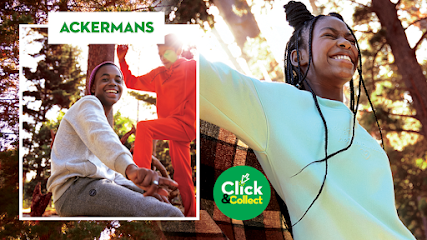
Essential bars & hidden hideouts
Tandurei Indian Restaurant
Discover authentic Indian flavors at Tandurei Indian Restaurant in Maun, where exceptional cuisine meets warm hospitality.
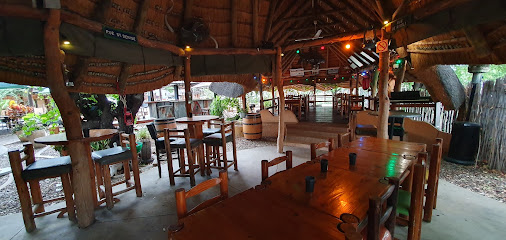
Dusty Donkey Café
Experience the delightful flavors of Dusty Donkey Café in Maun, a perfect blend of local charm and delicious cuisine.
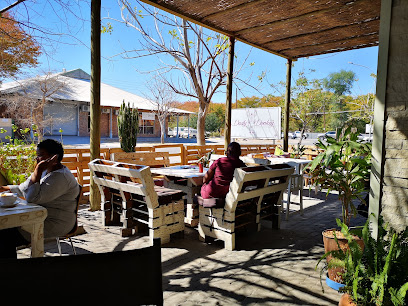
Marc's Eatery
Discover the culinary delights of Maun at Marc's Eatery, where fresh ingredients and a welcoming atmosphere create an unforgettable dining experience.
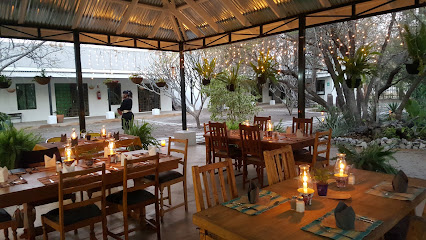
The Duck Café
Experience the vibrant flavors of Maun at The Duck Café, where delicious meals and local crafts merge in a cozy atmosphere.
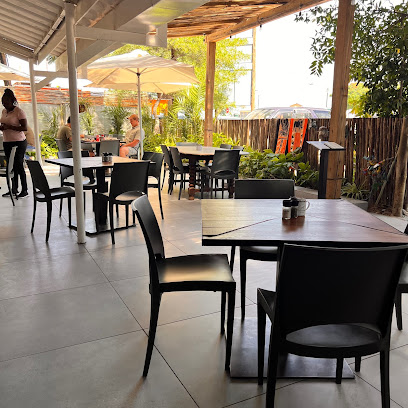
The Boma Restaurant & Riverview Bar
Experience the taste of Botswana at The Boma Restaurant & Riverview Bar, where local flavors meet stunning river views.
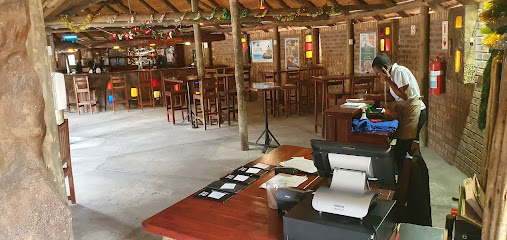
Lunar Bar
Discover the lively Lunar Bar in Maun, where delicious grill flavors meet vibrant nightlife and a welcoming atmosphere for tourists.
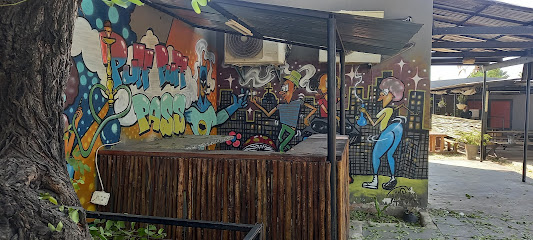
La Vue Restaurant
Experience authentic local cuisine with stunning views at La Vue Restaurant in Maun, Botswana—a must-visit for all travelers.
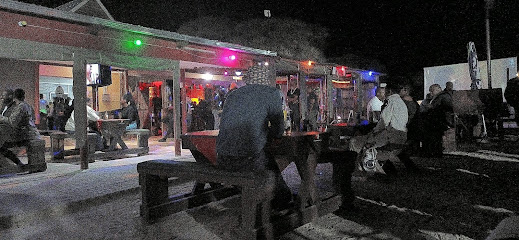
Masters Bar
Experience the vibrant atmosphere of Masters Bar in Maun, where refreshing drinks and local culture come alive in a cozy setting.
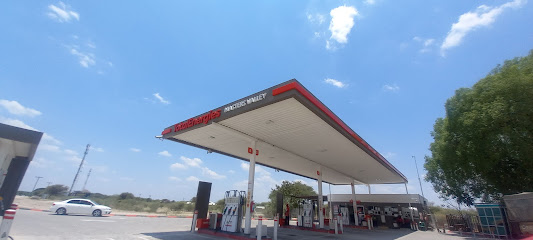
DIKGOSHI CHILLAS PUB and kings General Dealer
Dikgoshi Chillas Pub: A lively bar in Maun blending local culture with a vibrant nightlife experience.
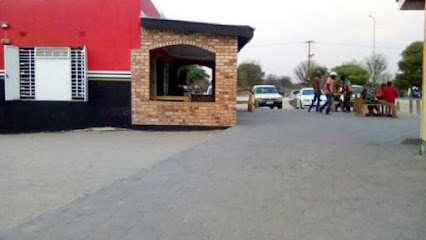
Black Bull Pub & Grill
Savor the taste of Botswana at Black Bull Pub & Grill, where local flavors meet a welcoming atmosphere in Maun.
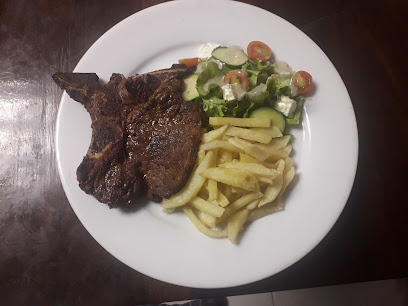
KANANA BAR
Discover the lively Kanana Bar in Maun, where vibrant nightlife meets authentic local culture, perfect for a relaxing evening out.
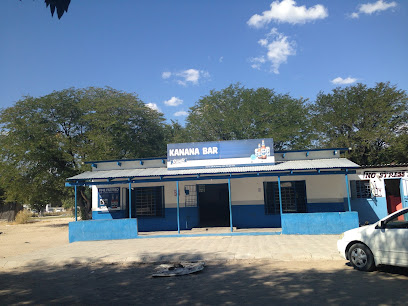
Ponny Bar
Discover Ponny Bar in Maun, Botswana – a lively bar offering local brews and a vibrant atmosphere for unforgettable nights out.
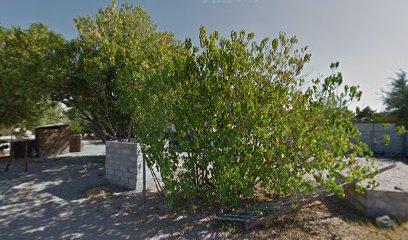
Fortress Square
Experience the vibrant culture and refreshing local beverages at Fortress Square, a must-visit bar in the heart of Maun, Botswana.
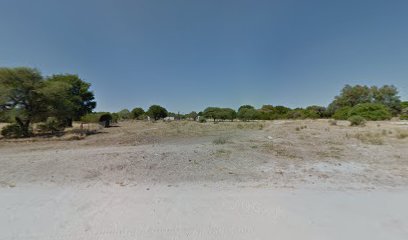
Star bar
Discover the lively Star Bar in Maun, where vibrant nightlife meets local culture, perfect for an unforgettable evening out.
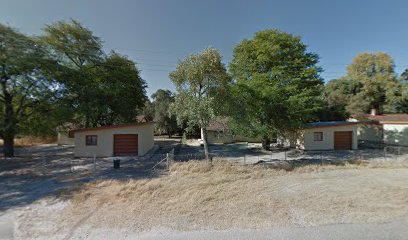
Local Phrases
-
- HelloDumela
[doo-meh-lah] - GoodbyeTsamaya sentle
[tsah-mah-yah sehn-tleh] - YesEe
[eh] - NoNnyaa
[n-yah] - Please/You're welcomeKe kopa
[keh koh-pah] - Thank youKe a leboga
[keh ah leh-boh-gah] - Excuse me/SorryKe kopa tshelete
[keh koh-pah tshay-leh-teh] - How are you?O kae?
[oh kah-eh] - Fine. And you?Ke tsogile. Le wena?
[keh tsoh-gee-leh. leh weh-nah] - Do you speak English?O bua Setswana?
[oh boo-ah set-swah-nah] - I don't understandGa ke itse
[gah keh eet-seh]
- HelloDumela
-
- I'd like to see the menu, pleaseKe kopa go bona menu
[keh koh-pah goh boh-nah meh-noo] - I don't eat meatGa ke itse nyama
[gah keh eet-seh nyah-mah] - Cheers!Hlala pha
[lah-lah pah] - I would like to pay, pleaseKe kopa go dira thepa
[keh koh-pah goh dee-rah teh-pah]
- I'd like to see the menu, pleaseKe kopa go bona menu
-
- Help!Boitumelo!
[boy-too-meh-loh] - Go away!Tswela pele!
[tsway-lah peh-leh] - Call the Police!Bula Polase!
[boo-lah poh-lah-seh] - Call a doctor!Bula ndlovu!
[boo-lah n-dloh-voo] - I'm lostKe tshwerwe
[keh tshwehr-weh] - I'm illKe a bolawa
[keh ah boh-lah-wah]
- Help!Boitumelo!
-
- I'd like to buy...Ke kopa go rekela...
[keh koh-pah goh reh-keh-lah...] - I'm just lookingKe a bonela fela
[keh ah boh-neh-lah feh-lah] - How much is it?E e leng?
[eh eh leh-ng] - That's too expensiveKe e le mahala
[keh eh leh mah-hah-lah] - Can you lower the price?O ka rekela sepe?
[oh kah reh-keh-lah seh-peh]
- I'd like to buy...Ke kopa go rekela...
-
- What time is it?Ke nako mang?
[keh nah-koh mah-ng] - It's one o'clockKe nako ya kwa
[keh nah-koh yah kwah] - Half past (10)Bo kete (10)
[boh keh-teh (10)] - MorningBontle
[bohn-tleh] - AfternoonKgotsa
[koh-t-sah] - EveningMosu
[moh-soo] - YesterdayNako ya gae
[nah-koh yah gah-eh] - TodayNako e tee
[nah-koh eh teh-eh] - TomorrowNako ya gompieno
[nah-koh yah gohm-pee-eh-noh] - 1Lefatsheng
[leh-fah-tsheng] - 2Bobedi
[boh-beh-dee] - 3Boraro
[boh-rah-roh] - 4Bone
[boh-neh] - 5Botswe
[boh-tsway] - 6Boroka
[boh-roh-kah] - 7Bosele
[boh-seh-leh] - 8Bono
[boh-noh] - 9Boraro le le nne
[boh-rah-roh leh leh n-neh] - 10Lese diaropa
[leh-seh dee-ah-roh-pah]
- What time is it?Ke nako mang?
-
- Where's a/the...?Kae...?
[kah-eh...?] - What's the address?Leina la kae?
[leh-ee-nah lah kah-eh?] - Can you show me (on the map)?O ka nna o leka sepe (ka map)?
[oh kah nah oh leh-kah seh-peh (kah map)?] - When's the next (bus)?Ene le kae (bus) e e nne?
[eh-neh leh kah-eh (bus) eh eh n-neh?] - A ticket (to ....)Thepa (go ....)
[teh-pah (goh ....)]
- Where's a/the...?Kae...?
History of Maun
-
Maun, often referred to as the 'Gateway to the Okavango Delta,' was founded in 1915. It was established as the tribal capital of the Batawana people, a subgroup of the Tswana. The name 'Maun' is derived from 'maung,' which means 'the place of short reeds.' The founding of Maun marked an important moment in Botswana’s history, as it became a central hub for trade and transport in the region.
-
Throughout the late 19th and early 20th centuries, Maun saw the arrival of various European explorers and missionaries. Notably, David Livingstone, the famous British explorer, passed through the area in his travels. These encounters brought new technologies and ideologies but also led to significant cultural exchanges and tensions.
-
Maun’s proximity to the Okavango Delta has always played a crucial role in its history. The Delta, one of the world's largest inland deltas, attracts wildlife and tourists alike. Historically, the Batawana people utilized the Delta for fishing, hunting, and agriculture. The area’s rich biodiversity and natural resources have made it a focal point for both local livelihoods and conservation efforts.
-
In the late 20th century, Maun transformed into a thriving tourist destination. The establishment of safari lodges and tour companies turned the city into a bustling gateway for visitors exploring the Okavango Delta. This boom in tourism has significantly contributed to the local economy, providing jobs and fostering international interest in Botswana’s natural beauty.
-
Recent years have seen considerable development in Maun. Infrastructure improvements, such as paved roads and upgraded airport facilities, have made the city more accessible. While maintaining its traditional charm, Maun has also embraced modernity, with new hotels, restaurants, and cultural centers showcasing the blend of past and present.
Maun Essentials
-
Maun is accessible by air and road. The Maun International Airport (MUB) serves as the primary gateway, with regular flights from Johannesburg, Cape Town, and Gaborone. Major airlines such as Air Botswana and South African Airways operate flights to Maun. By road, Maun can be reached via the A3 highway from Francistown or Gaborone. The drive offers scenic views but can be long and tiring, so ensure your vehicle is in good condition and carry enough fuel and supplies.
-
In Maun, transportation options include taxis, rental cars, and local minibuses known as combis. Taxis are plentiful and can be hailed on the street or booked through your accommodation. For more freedom to explore, consider renting a car; several car rental agencies operate in Maun. Combis are a budget-friendly option for short trips within the town but can be crowded and less comfortable. Many lodges and safari companies offer shuttle services to various attractions.
-
The official currency in Botswana is the Botswana Pula (BWP). Credit cards are widely accepted in hotels, restaurants, and major shops, but it is advisable to carry some cash for smaller establishments and markets. ATMs are available in Maun, but it's wise to withdraw sufficient cash before heading into remote areas. Exchange facilities are available at the airport and in town.
-
Maun is generally safe for tourists, but standard precautions should be taken. Avoid walking alone at night, especially in poorly lit areas. Notable areas to be cautious of include the Old Bridge neighborhood, which has experienced incidents of petty theft targeting tourists. Keep your belongings secure and be vigilant in crowded places. Avoid displaying valuables and use hotel safes for important documents and money.
-
In case of an emergency, dial 999 for police assistance, 998 for fire emergencies, and 997 for medical emergencies. Maun has a hospital and several clinics for medical care. It's advisable to have travel insurance that covers medical emergencies, including evacuation if necessary. For minor health issues, pharmacies are available in town where you can purchase over-the-counter medications.
-
Fashion: Do dress modestly, especially in rural areas and when visiting local communities. Avoid overly revealing clothing. Religion: Do respect local customs and traditions. While Botswana is predominantly Christian, traditional beliefs are also practiced. Public Transport: Do be respectful and courteous. Avoid eating or drinking on public transport. Greetings: Do greet people with a friendly 'Dumela' (hello). A handshake is common, and it's polite to ask about someone's well-being. Eating & Drinking: Do try local dishes such as seswaa (pounded meat) and pap (maize porridge). Accept food offerings graciously and avoid wasting food, as it is considered disrespectful.
-
To experience Maun like a local, visit the local markets where you can buy fresh produce and handmade crafts. Engage with locals, who are often friendly and eager to share stories about their culture and history. Don't miss a visit to the Nhabe Museum to learn about the area's heritage. For a unique experience, take a mokoro (traditional dugout canoe) trip in the Okavango Delta. This offers a serene way to explore the delta's waterways and wildlife.
Nearby Cities to Maun
-
Things To Do in Katima Mulilo
-
Things To Do in Kasane
-
Things To Do in Victoria Falls
-
Things To Do in Livingstone
-
Things To Do in Hwange
-
Things To Do in Serowe
-
Things To Do in Francistown
-
Things To Do in Rundu
-
Things To Do in Palapye
-
Things To Do in Mahalapye
-
Things To Do in Selebi-Phikwe
-
Things To Do in Molepolole
-
Things To Do in Gaborone
-
Things To Do in Tsumeb
-
Things To Do in Lobatse








